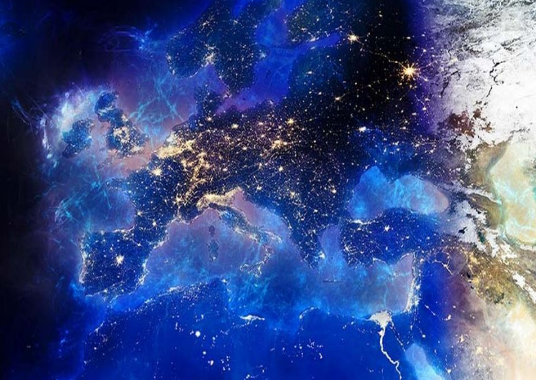
Sep 9, 2024 | AI, Austria, copyright, Germany
In examing the technology of generative AI models in detail, two professors from Germany have reached the conclusion that the training of such models is more than a simple case of text and data mining. It involves clear copyright infringement […]

Jul 25, 2024 | AI, EU policy, Joint letter
As a new EU policy cycle is about to start, CEATL, together with 12 European and International organisations representing the voice of writers, translators, performers, composers, songwriters, screen directors, screenwriters, visual artists, journalists, and other creative workers, co-signed a joint letter to the newly-elected European Parliament.

Jun 12, 2024 | AI IA Italy
In La Lettura, the culture supplement of Il Corriere della Sera, Cristina Taglietti wrote about AI and literary translation, mentioning CEATL’s statement, issue 10 of Counterpoint and the Strasbourg Conference.

May 28, 2024 | AI, authors, human translation
The Translators’ Section of the Swedish Writers’ Union commissioned an anonymous artist to create the illustration to this post. The Union is of the firm belief that literary works written by human writers require and deserve human translators.

May 21, 2024 | AI, postediting, Survey
In October 2023, CEATL conducted a survey about the impact of AI on literary translators’ work and income. Approximately 1,500 literary translators from 34 CEATL member associations answered the questionnaire.

May 21, 2024 | EU, IA Act, statement
CEATL, together with 12 European and International authors’, performers’ and other creative workers’ organisations, welcome the adoption of the AI Act but underline the need of an effective implementation, the safeguard of the fundamental rights of authors and performers and of transparency.

Mar 6, 2024 | AI, Austria, Europe, Europe; European Union;, Germany, Open letter, Switzerland
Tags: AI, Austria, Europe, Europe; European Union;, Germany, Open letter, Switzerland The three German-language translators’ organisations IGÜ (Austria), A*dS (Switzerland) […]

Feb 20, 2024 | AI, Survey, Working conditions
Tags: AI, Survey, Working conditions There is a lot going on in the AI field and most CEATL member associations […]

Dec 19, 2023 | AI, Counterpoint
In this 10th issue of Counterpoint, we take up a topic which is both frightening and fantastic for those of us in the field of literary translation. AI, artificial intelligence, has been at the forefront of countless debates, news reels, articles and talks over recent months, and the questions on what this new technology means …

Nov 15, 2023 | AI, artificial intelligence, statement
Since the beginning of 2023, the spectacular evolution of artificial intelligence, and in particular the explosion in the use of generative AI in all areas of creation, has raised fundamental questions and sparked intense debate. CEATL has drafted its own statement detailing its stance on the use of generative AIs in the field of literary translation.
Oct 12, 2023 | AGM, AGM2023, AI, Generative AI, Ljubljana, Slovenia
Tags: AGM, AGM2023, AI, Generative AI, Ljubljana, SloveniaAt the CEATL Annual General Meeting in Ljubljana, Slovenia, in May, delegates listened […]

Oct 2, 2023 | AI, EU, joint statement
CEATL, together with 12 European and International authors’, performers’ and other creative workers’ organisations, urgently call for a human centric approach to generative AI, built upon informed consent, transparency, fair remuneration and contractual practices.











